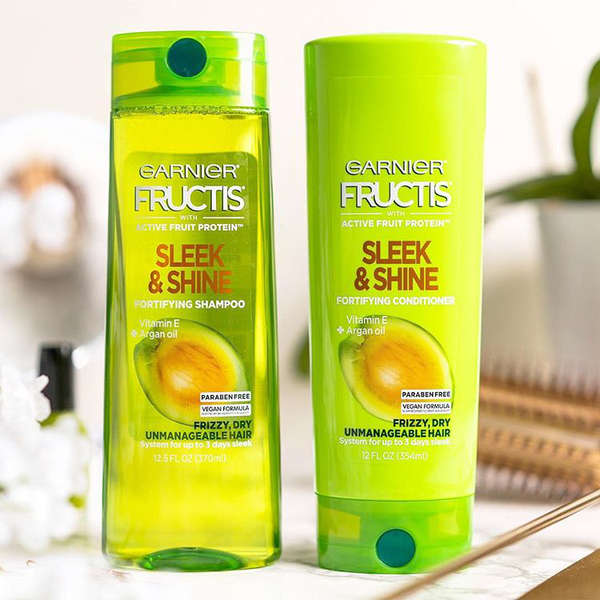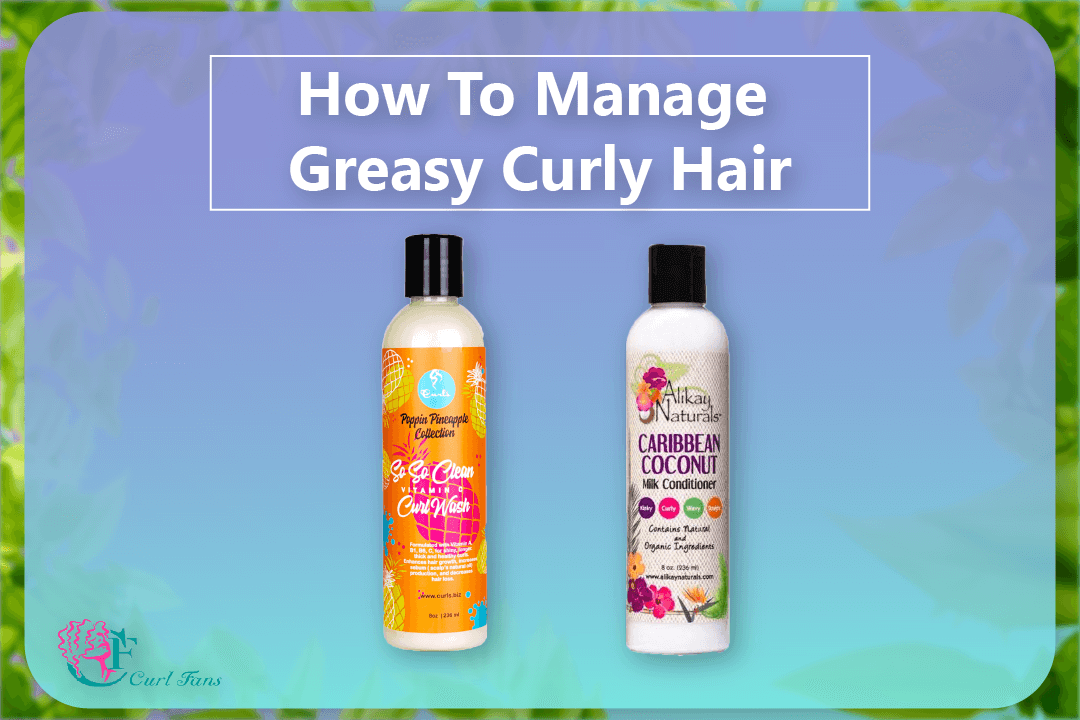Greasy curly hair can be a challenge for many people, but it doesn't have to be. If you're struggling with an oily scalp and frizzy curls, you're not alone. Millions of people worldwide face similar issues, and understanding the root causes is the first step toward effective management. In this article, we'll explore the science behind greasy curly hair, practical tips for care, and expert recommendations to help you achieve healthy, manageable curls.
Curly hair is naturally prone to dryness due to its structure, but when combined with an oily scalp, it can create a frustrating contradiction. The key lies in finding the right balance between hydration and oil control. This guide will provide you with actionable steps to manage greasy curly hair, backed by scientific research and professional advice.
Whether you're looking for daily care routines, product recommendations, or styling tips, this article covers everything you need to know. Let's dive in and discover how to tame your greasy curls once and for all!
Read also:Aesthetic Spring Outfits Elevate Your Style This Season
Table of Contents
- What Causes Greasy Curly Hair?
- The Difference Between Oily Scalp and Greasy Hair
- Daily Care Routine for Greasy Curly Hair
- Best Products for Managing Greasy Curly Hair
- How Often Should You Wash Greasy Curly Hair?
- Practical Tips for Reducing Oiliness
- Styling Greasy Curly Hair Without Adding More Oil
- The Role of Diet in Managing Greasy Hair
- When to Consult a Dermatologist
- Conclusion and Final Thoughts
What Causes Greasy Curly Hair?
Greasy curly hair is often a result of an overactive sebaceous gland, which produces excess sebum. Sebum is the natural oil that keeps your scalp and hair hydrated, but when produced in excess, it can weigh down your curls and make them appear oily. According to dermatologists, several factors contribute to this condition:
- Hormonal Changes: Fluctuations in hormones, such as during puberty, pregnancy, or menopause, can increase sebum production.
- Genetics: Some people are naturally predisposed to having oily hair due to their genetic makeup.
- Stress: High levels of stress can stimulate the production of cortisol, which in turn increases sebum secretion.
- Improper Hair Care: Using the wrong products or washing your hair too frequently can disrupt the scalp's natural balance.
Understanding these causes is essential for developing an effective hair care strategy. By addressing the root of the problem, you can better manage your greasy curls and achieve a healthier look.
The Difference Between Oily Scalp and Greasy Hair
Understanding the Basics
While the terms "oily scalp" and "greasy hair" are often used interchangeably, they refer to slightly different conditions. An oily scalp occurs when the sebaceous glands produce excess sebum, which can then spread to the hair shaft, making it appear greasy. However, greasy hair can also result from external factors such as product buildup or environmental pollution.
It's important to differentiate between the two because the treatment approach may vary. For example, an oily scalp may require more frequent washing, while greasy hair caused by product buildup might benefit from a clarifying shampoo.
Daily Care Routine for Greasy Curly Hair
A well-planned daily care routine is crucial for managing greasy curly hair. Here are some steps you can incorporate into your regimen:
- Wash Regularly: Find the right balance between washing too often and not enough. Most experts recommend washing every 2-3 days.
- Use the Right Shampoo: Choose a sulfate-free shampoo designed for curly hair to avoid stripping your scalp of its natural oils.
- Condition Wisely: Apply conditioner only to the mid-lengths and ends of your hair to avoid weighing down your roots.
- Blot Excess Oil: Use oil-absorbing sheets or dry shampoo between washes to control oiliness.
Consistency is key when it comes to managing greasy curls. Stick to your routine, and you'll notice improvements over time.
Read also:White And Gold Nails Almond The Ultimate Guide To Elegance And Sophistication
Best Products for Managing Greasy Curly Hair
Shampoos and Conditioners
Selecting the right products can make a significant difference in managing greasy curly hair. Look for shampoos that are specifically formulated for oily hair but also cater to curly textures. Some popular options include:
- Briogeo Don't Despair, Repair! Deep Conditioning Mask
- OGX Nourishing Coconut Milk Shampoo
- Devacurl No-Poo Original Moisturizing Cleanser
Styling Products
When it comes to styling products, opt for lightweight formulas that won't weigh down your curls. Gel-based products or leave-in conditioners are excellent choices for adding definition without adding grease.
How Often Should You Wash Greasy Curly Hair?
The frequency of washing greasy curly hair depends on various factors, including your scalp's oil production and hair type. While some people may benefit from daily washing, others might find that washing every 2-3 days works better. Experiment to find what suits your hair best.
It's also worth noting that over-washing can strip your scalp of its natural oils, leading to increased sebum production as a compensatory mechanism. To avoid this, consider co-washing (washing with conditioner only) on days when your hair feels oily but not dirty.
Practical Tips for Reducing Oiliness
Here are some practical tips to help reduce oiliness in your curly hair:
- Avoid touching your hair too often, as this can transfer oils from your hands to your hair.
- Use a microfiber towel or cotton t-shirt to dry your hair instead of a regular towel, which can cause friction and lead to frizz.
- Try sleeping on a silk or satin pillowcase to minimize friction and oil transfer during the night.
- Consider using a scalp scrub once a week to remove dead skin cells and product buildup.
Implementing these tips can significantly improve the manageability of your greasy curls.
Styling Greasy Curly Hair Without Adding More Oil
Choosing the Right Tools
When styling greasy curly hair, it's important to choose tools that won't add more oil to your hair. Diffusers, for example, are excellent for defining curls without adding heat or product buildup. Additionally, avoid using flat irons or straighteners, as these can damage your hair and lead to increased oil production.
Product Application Techniques
Apply styling products sparingly and focus on the mid-lengths and ends of your hair. Using too much product on your roots can exacerbate oiliness. Instead, scrunch the product into your hair to enhance curl definition.
The Role of Diet in Managing Greasy Hair
Your diet can play a significant role in managing greasy curly hair. Consuming a balanced diet rich in vitamins and minerals can help regulate sebum production. Foods high in omega-3 fatty acids, such as salmon and walnuts, are particularly beneficial for scalp health.
Additionally, staying hydrated is crucial for maintaining healthy hair. Drink plenty of water throughout the day and limit your intake of processed foods and sugary beverages, which can contribute to oiliness.
When to Consult a Dermatologist
If you've tried various remedies and still struggle with excessive oiliness, it may be time to consult a dermatologist. They can help identify any underlying conditions, such as seborrheic dermatitis or hormonal imbalances, that may be contributing to your greasy curls.
A dermatologist can also recommend prescription treatments or therapies that target the root cause of your oily scalp. Don't hesitate to seek professional advice if your condition persists despite home care efforts.
Conclusion and Final Thoughts
Managing greasy curly hair requires a combination of proper care, product selection, and lifestyle adjustments. By understanding the causes of oiliness and implementing the strategies outlined in this guide, you can achieve healthier, more manageable curls.
We encourage you to share your experiences and tips in the comments below. Your insights could help others who are also dealing with greasy curly hair. Additionally, don't forget to explore our other articles for more hair care advice and beauty tips.
Remember, consistency is key. Stick to your routine, and with time, you'll notice a significant improvement in the health and appearance of your curls. Thank you for reading, and we hope this guide has been helpful in your hair care journey!



